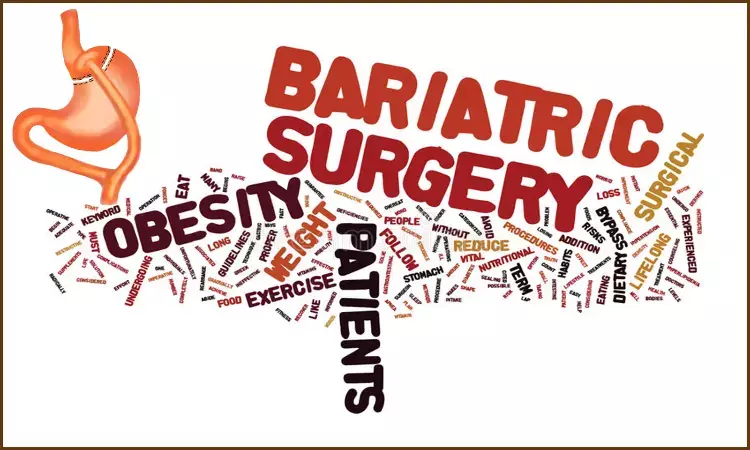- Home
- Medical news & Guidelines
- Anesthesiology
- Cardiology and CTVS
- Critical Care
- Dentistry
- Dermatology
- Diabetes and Endocrinology
- ENT
- Gastroenterology
- Medicine
- Nephrology
- Neurology
- Obstretics-Gynaecology
- Oncology
- Ophthalmology
- Orthopaedics
- Pediatrics-Neonatology
- Psychiatry
- Pulmonology
- Radiology
- Surgery
- Urology
- Laboratory Medicine
- Diet
- Nursing
- Paramedical
- Physiotherapy
- Health news
- Fact Check
- Bone Health Fact Check
- Brain Health Fact Check
- Cancer Related Fact Check
- Child Care Fact Check
- Dental and oral health fact check
- Diabetes and metabolic health fact check
- Diet and Nutrition Fact Check
- Eye and ENT Care Fact Check
- Fitness fact check
- Gut health fact check
- Heart health fact check
- Kidney health fact check
- Medical education fact check
- Men's health fact check
- Respiratory fact check
- Skin and hair care fact check
- Vaccine and Immunization fact check
- Women's health fact check
- AYUSH
- State News
- Andaman and Nicobar Islands
- Andhra Pradesh
- Arunachal Pradesh
- Assam
- Bihar
- Chandigarh
- Chattisgarh
- Dadra and Nagar Haveli
- Daman and Diu
- Delhi
- Goa
- Gujarat
- Haryana
- Himachal Pradesh
- Jammu & Kashmir
- Jharkhand
- Karnataka
- Kerala
- Ladakh
- Lakshadweep
- Madhya Pradesh
- Maharashtra
- Manipur
- Meghalaya
- Mizoram
- Nagaland
- Odisha
- Puducherry
- Punjab
- Rajasthan
- Sikkim
- Tamil Nadu
- Telangana
- Tripura
- Uttar Pradesh
- Uttrakhand
- West Bengal
- Medical Education
- Industry
Adequate weight loss by bariatric surgery may help improve albuminuria in severe obesity

In patients with severe obesity, albuminuria can be improved by both conventional medical therapy and bariatric surgery. In Japanese subjects with severe obesity, albuminuria may increase over time if only conventional medical therapy is continued.
Adequate weight loss by laparoscopic sleeve gastrectomy may help improve Albuminuria in severe obesity, finds a study conducted by Yasuhiro Watanabe and team.
The findings of this study were published in the journal, Obesity Facts on 14th October, 2021.
The goal of this study was to evaluate the influence of weight reduction accomplished by standard medical therapy vs laparoscopic sleeve gastrectomy (LSG) on albuminuria in Japanese patients with extreme obesity, as well as to determine the factors involved. The clinical parameters, including the urine albumin/creatinine ratio (UACR), of 340 consecutive patients with a BMI of 35 who underwent LSG (n = 242) or medicinal treatment (n = 98) between 2010 and 2018 and were followed for at least 12 months were examined retrospectively.
The primary findings of this study were that medical treatment alone did not prevent the increase in the UACR, but LSG prevented or even lowered the UACR, and that percent TWL contributed independently to the decrease in the UACR, regardless of whether LSG was done. Diabetes remission rates of around 86% after LSG have also been reported. In this study, the percentage of full diabetes remission was 77.4%, which is somewhat lower than the previous report but not by much. The current study found that 63.5% of patients in the medical treatment group and 80.3% of subjects in the LSG group had normal albuminuria. Weight reduction associated negatively with the change in the log UACR in both the medical treatment and LSG groups in the analysis of the remaining individuals with microalbuminuria and macroalbuminuria. The medical treatment group had a greater number of individuals with microalbuminuria and macroalbuminuria, which was unexpected.
In conclusion, medical treatment may not produce the necessary weight reduction to ameliorate albuminuria, and bariatric surgery, particularly LSG, may be the preferable technique to accomplish enough weight loss.
Reference:
Watanabe Y, Yamaguchi T, Yamaoka S, Abe K, Onda H, Nakamura S, Tanaka S, Oshiro T, Ohira M, Nagayama D, Shimizu N, Tatsuno I, Saiki A: Effect of Conventional Medical Therapy or Laparoscopic Sleeve Gastrectomy on Urinary Albumin in Japanese Subjects with Severe Obesity: An Observational Study. Obes Facts 2021. doi: 10.1159/000519156
Medical Dialogues consists of a team of passionate medical/scientific writers, led by doctors and healthcare researchers. Our team efforts to bring you updated and timely news about the important happenings of the medical and healthcare sector. Our editorial team can be reached at editorial@medicaldialogues.in.


